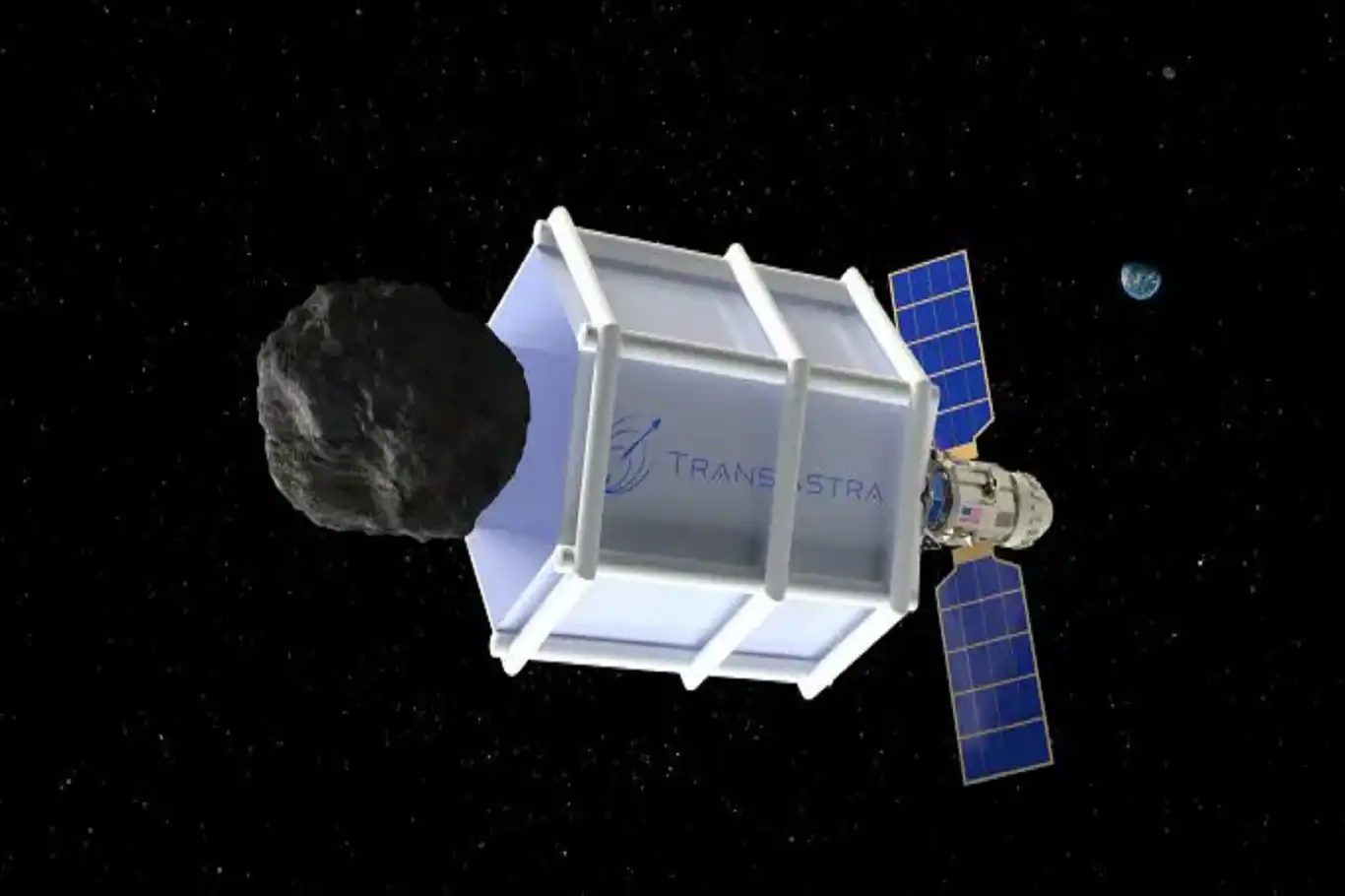California startup develops inflatable “capture bag” to mine asteroids


A California-based startup, TransAstra, is developing an innovative solution to capture asteroids and space debris: a giant inflatable device called the Capture Bag.
The technology, designed in various sizes, can trap objects ranging from small space rocks to boulder-sized asteroids, offering a potential breakthrough in asteroid mining and orbital debris management.
Asteroids are rich in rare and common metals, and proponents argue that mining them could provide a more sustainable alternative to traditional Earth-based mining, which is resource-intensive and environmentally harmful. TransAstra aims to tackle one of the space industry’s biggest challenges by addressing four critical steps in asteroid exploitation: detect, capture, move, and process, according to founder and aerospace engineer Joel Sercel, who previously taught at Caltech.
The Capture Bag is deployed aboard a spacecraft, which travels to the target asteroid or piece of space debris. Once in proximity, the spacecraft inflates the durable, flexible bag around the object, gently securing it without causing damage, an approach designed to account for the unpredictable structure of asteroids.
This method not only facilitates mining but also offers a practical way to remove defunct satellites and other orbital debris, a growing concern for space agencies and scientists worldwide.
TransAstra has successfully tested its Capture Bag technology on the International Space Station (ISS) and is now developing larger versions with NASA and private funding. The company is targeting asteroids in Earth-like orbits, which are relatively accessible at a distance of a few billion kilometers, making them ideal candidates for mining operations.
“We already know where hundreds of these objects are, and we’re planning on going and getting the first one in 2028 — that, we think, will foment a true industrial revolution in space,” Sercel said.
TransAstra has secured $12 million from private investors and $15 million from NASA and US Space Force contracts to advance the project. While asteroid mining remains a high-risk endeavor, only three government-led sample-return missions have succeeded so far, each costing hundreds of millions of dollars.
TransAstra’s largest bags could potentially capture asteroids weighing up to 10,000 tons, enabling extraction of metals and minerals directly in space. The company hopes to begin mining operations by 2028.
Space debris removal: Before attempting to capture valuable asteroids, the technology will be used to secure defunct satellites and other space junk, reducing risks to navigation and spacecraft safety.
As the private space sector continues to grow, technologies like the Capture Bag represent a step toward sustainable resource extraction and safer orbital operations, with the potential to reshape the economics of space exploration. (ILKHA)
LEGAL WARNING: All rights of the published news, photos and videos are reserved by İlke Haber Ajansı Basın Yayın San. Trade A.Ş. Under no circumstances can all or part of the news, photos and videos be used without a written contract or subscription.
Chinese electric vehicle manufacturer XPENG has reached a major milestone in the future of urban air mobility, as its subsidiary XPENG AEROHT officially launched trial production at what is being described as the world’s first intelligent flying car factory.
A German court has ruled that OpenAI’s ChatGPT unlawfully used lyrics from several songs, including hits by renowned musician Herbert Grönemeyer, in violation of Germany’s copyright laws.
Social media platform X, formerly known as Twitter, is experiencing widespread technical disruptions as it transitions its security infrastructure, leaving millions of users who rely on hardware security keys and passkeys unable to access their accounts.